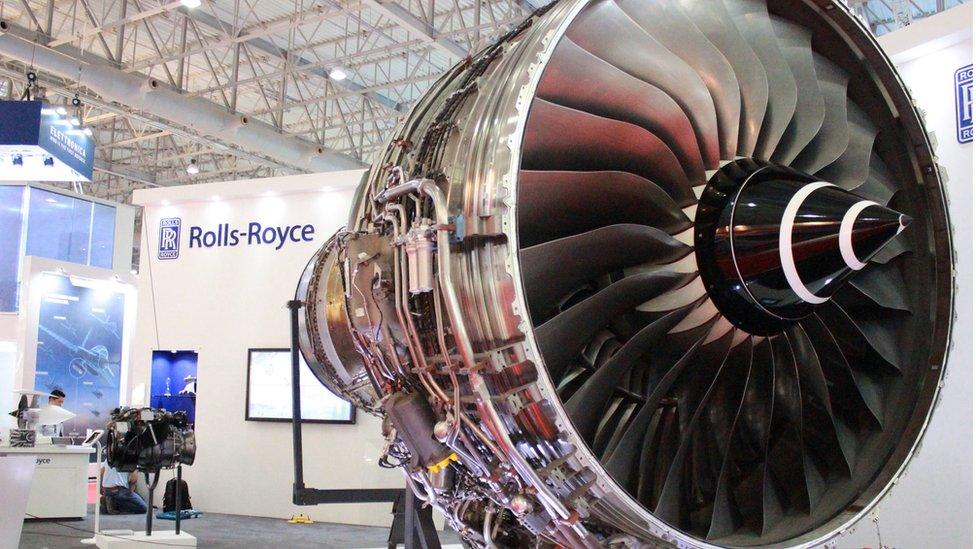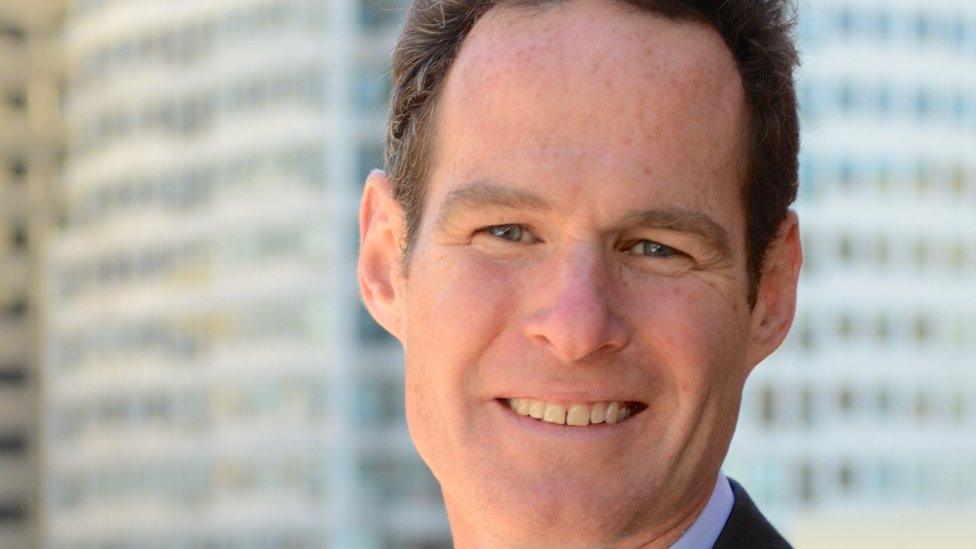Rolls-Royce gives board seat to activist shareholder
- Published

Aerospace giant Rolls-Royce has given a board seat to a representative of its biggest shareholder, ValueAct Capital.
The activist shareholder's partner and chief operating officer, Bradley Singer, will become a non-executive director, external with immediate effect.
ValueAct owns a 10.8% stake in Rolls-Royce, which has issued a string of profit warnings in recent months.
The fund had been pressing the company for a seat on the board.
Profits at the world's second-largest maker of aircraft engines are set to halve this year after falling by 16% for 2015 on difficult trading in its civil aerospace unit. The company's marine engine business was also hit by declining demand from oil and gas customers.
Ian Davis, Rolls-Royce chairman, said Mr Singer had experience of public companies during "periods of change, growth and significant financial outperformance, particularly in the US where Rolls-Royce has important business interests and a significant shareholder base".
He added: "This appointment will not trigger a particular strategic review. There are no changes to our plan to maintain the broad structure of the company."

ValueAct chief operating officer Bradley Singer
ValueAct usually makes about three to four new investments a year and has a reported $3.3bn (£2.2bn) stake in Microsoft.
It says it took significant stakes in companies it believed were "fundamentally undervalued" for a variety of reasons.
"These conditions can often result in fundamentally 'good' businesses that are available at depressed valuations," ValueAct said.
'No friction'
Russ Mould, investment director at AJ Bell, said Rolls-Royce had "embraced ValueAct," and that the appointment gave the investor a "voice in how the company implements its turnaround plan".
"From the company's perspective there's no public friction, from the investors' perspective they're being listened to," he added.
"That's the way in which they prefer to work. Although the activists have a reputation for being a bit rough and tumble, they would prefer to work behind the scenes and be suggestivist rather than activist."
Shares in Rolls-Royce have fallen by 27% over the past 12 months and were down 1.2% at 675p in morning trading in London.
Founded in 1884, Rolls-Royce was separated from the luxury car brand of the same name in the 1970s when it was under state ownership before becoming one of the UK's most prominent engineering companies.
- Published12 February 2016

- Published24 November 2015
